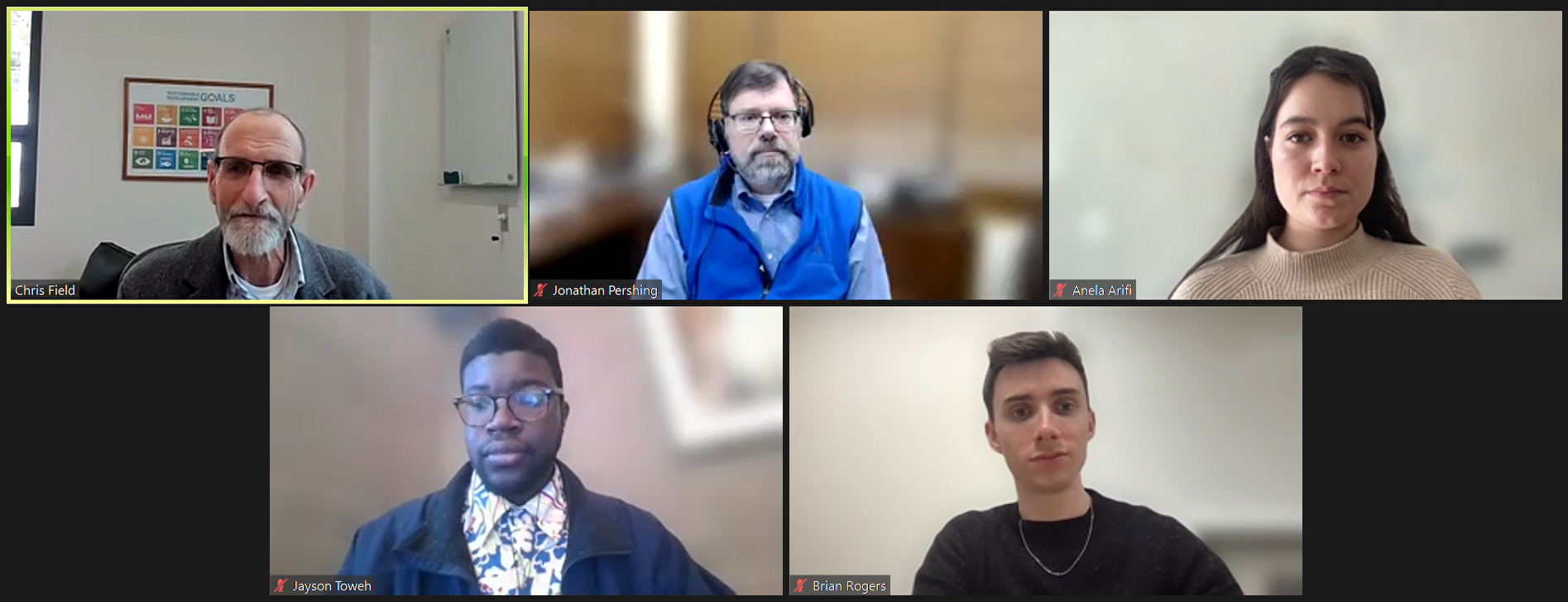Attendees of the 28th Conference of the Parties to the United Nations Framework Convention on Climate Change (COP28) conference in Dubai reflected on their experiences and expressed reserved optimism about the future of climate change policy in a Monday webinar.
The webinar comes about a month after the conclusion of COP28, an annual global climate conference that ran from Nov. 30 to Dec. 13. The 2023 conference boasted its largest-ever iteration, with around 85,000 attendees.
It was a turnout that made Brian Rogers, a fourth-year Ph.D. candidate in earth systems science, very optimistic. “It makes you realize just how massive this whole operation is,” he said.
Moderated by Chris Field, a professor of interdisciplinary environmental studies and director of the Woods Institute for the Environment Chris Field, the webinar included three Ph.D. students in conversation with Jonathan Pershing, the program director of environment at the Hewlett Foundation.
While participants in the webinar were generally optimistic about the future of climate change, some raised concerns. Anela Arifi, a fourth-year energy engineering Ph.D. candidate, said the “record number of fossil fuel lobbyists” who attended COP 28 had influenced key policymaking during the conference.
“One specific point that worried me … was this big emphasis on transitional, low-carbon fuels,” Arifi said. “I was just left wondering whether these low-carbon aviation fuels — which are basically fossil fuel-based fuels — are really helping the transition or are hindering the progress of sustainable aviation fuels.”
Pershing agreed that the conference likely did not go far enough in the pledges it had produced.
“There’s this ambiguity — so it says transition. Over what period do you transition? … What does it mean to transition?” Pershing asked. “These are things that are ambiguous at best, and frankly, on which the text is silent.”
Third-year Ph.D. student in environment and resources Jayson Toweh raised the question of environmental justice. He emphasized the need to focus on “the folks, really, that have impacted and driven [climate change] to actually pay for the damages experienced and the communities impacted.”
Toweh said that many industrialized countries had chipped in millions of dollars to help others recover from the effects of climate change, helping spur “a great discussion in actually getting things started.” But, Toweh said, billions more were needed.
Participants in the webinar brought up the role youth had played and could continue to play in climate activism. To Pershing, the youth community could continue to play a critical role in elevating the climate discussion “partly by showing up, partly by having your voice heard and partly by speaking out in channels that are often really not that well used by traditional media.”
Toweh said that he hoped that COP29 would continue to engage youth in climate policymaking.
Arifi described how COP28 had provided a great venue for her to “establish some partnerships with youth organizations, universities, high schools [and] even middle schools that were interested in partnering with Stanford’s Doerr School of Sustainability in different ways.”
When asked what Stanford could do, Toweh said that the University could play a big part.
“Stanford is such a well-known institution,” he said. “We have a wide reach. So I think we can help grow our top presence in the future.”
